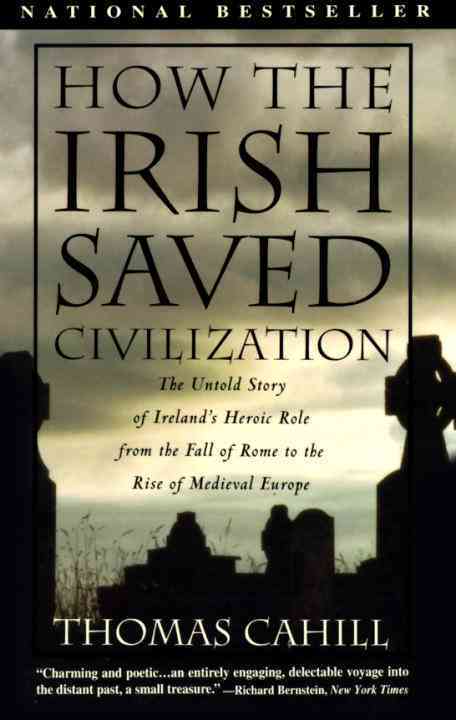內容簡介
內容簡介 We normally think of history as one catastrophe after another, war followed by war, outrage by outrage--almost as if history were nothing more than all the narratives of human pain, assembled in sequence. And surely this is, often enough, an adequate description. But history is also the narratives of grace, the recountings of those blessed and inexplicable moments when someone did something for someone else, saved a life, bestowed a gift, gave something beyond what was required by circumstance. In this series, The Hinges of History, I mean to retell the story of the Western world as the story of the great gift-givers, those who entrusted to our keeping one or another of the singular treasures that make up the patrimony of the West. This is also the story of the evolution of Western sensibility, a narration of how we became the people that we are and why we think and feel the way we do. And it is, finally, a recounting of those essential moments when everything was at stake, when the mighty stream that became Western history was in ultimate danger and might have divided into a hundred useless tributaries or frozen in death or evaporated altogether. But the great gift-givers, arriving in the moment of crisis, provided for transition, for transformation, and even for transfiguration, leaving us a world more varied and complex, more awesome and delightful, more beautiful and strong than the one they had found. --Thomas Cahill The perfect St. Patrick's Day gift, and a book in the best tradition of popular history -- the untold story of Ireland's role in maintaining Western culture while the Dark Ages settled on Europe.Every year millions of Americans celebrate St. Patrick's Day, but they may not be aware of how great an influence St. Patrick was on the subsequent history of civilization. Not only did he bring Christianity to Ireland, he instilled a sense of literacy and learning that would create the conditions that allowed Ireland to become "the isle of saints and scholars" -- and thus preserve Western culture while Europe was being overrun by barbarians. In this entertaining and compelling narrative, Thomas Cahill tells the story of how Europe evolved from the classical age of Rome to the medieval era. Without Ireland, the transition could not have taken place. Not only did Irish monks and scribes maintain the very record of Western civilization -- copying manuscripts of Greek and Latin writers, both pagan and Christian, while libraries and learning on the continent were forever lost -- they brought their uniquely Irish world-view to the task. As Cahill delightfully illustrates, so much of the liveliness we associate with medieval culture has its roots in Ireland. When the seeds of culture were replanted on the European continent, it was from Ireland that they were germinated. In the tradition of Barbara Tuchman's A Distant Mirror, How The Irish Saved Civilization reconstructs an era that few know about but which is central to understanding our past and our cultural heritage. But it conveys its knowledge with a winking wit that aptly captures the sensibility of the unsung Irish who relaunched civilization.
作者介紹
作者介紹 THOMAS CAHILL is the author of the best-selling books, How the Irish Saved Civilization: The Untold Story of Ireland’s Heroic Role from the Fall of Rome to the Rise of Medieval Europe, The Gifts of the Jews: How a Tribe of Desert Nomads Changed the Way Everyone Thinks and Feels, Desire of the Everlasting Hills: The World Before and After Jesus, Sailing the Wine-Dark Sea: Why the Greeks Matter, Mysteries of the Middle Ages: And the Beginning of the Modern World, and, most recently, Heretics and Heroes: How Renaissance Artists and Reformation Priests Created Our World. These six books comprise Volumes I, II, III, IV, V, and VI, respectively, of the Hinges of History, a prospective seven-volume series in which the author recounts formative moments in Western civilization. In ""The Hinges of History,"" Thomas Cahill endeavors to retell the story of the Western World through little-known stories of the great gift-givers, people who contributed immensely to Western, culture and the evolution of Western sensibility, thus revealing how we have become the people we are and why we think and feel the way we do today. Thomas Cahill is best known, in his books and lectures, for taking on a broad scope of complex history and distilling it into accessible, instructive, and entertaining narrative. His lively, engaging writing animates cultures that existed up to five millennia ago, revealing the lives of his principal characters with refreshing insight and joy. He writes history, not in its usual terms of war and catastrophe, but as ""narratives of grace, the recountings of those blessed and inexplicable moments when someone did something for someone else, saved a life, bestowed a gift, gave something beyond what was required by circumstance."" Unlike all too many history lessons, a Thomas Cahill history book or speech is impossible to forget. He has taught at Queens College, Fordham University and Seton Hall University, served as the North American education correspondent for the Times of London, and was for many years a regular contributor to the Los Angeles Times Book Review. Prior to retiring recently to write full-time, he was director of religious publishing at Doubleday for six years. He and his wife, Susan, also an author, founded the now legendary Cahill & Company, whose reader’s catalogue was much beloved in literary households throughout the country. They divide their time between New York, Rome and Paris.
